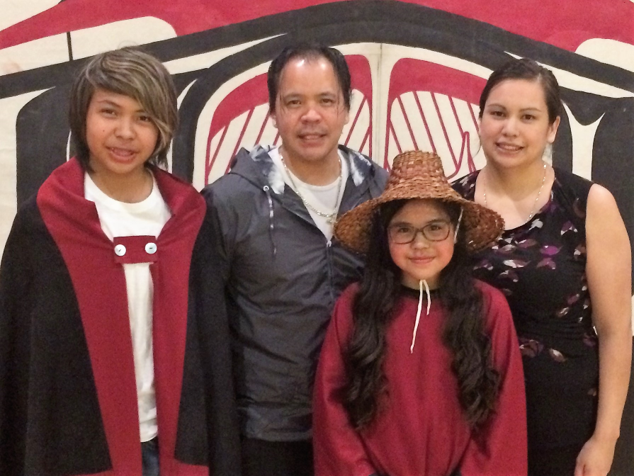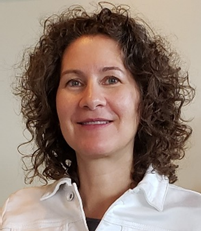Posted • Last updated
Categories: My Experience
[rt_reading_time label=”Reading Time:” postfix=”minutes”]
As part of our monthly blog feature on all the regions of BC (so far, we’ve done posts on a successful PVN project at Fraser Health and takeaways from the IAP2 conference in Victoria), we are focusing on Northern BC this month! We’ve asked Cherie, a PVN Patient Partner, to tell us about her experience as a volunteer in a rural northern Indigenous community and recently attending a conference in Baltimore through PVN. Take it away, Cherie!

My name is Cherie Mercer, Noxs Sak’al Gyoo from the Nisga’a Nation and I live in New Aiyansh, a small rural community in Northern BC. Our closest city, Terrace, is one hour away and we travel there often for supplies. I have been a patient partner with the Patient Voices Network (PVN) since 2010 but it wasn’t until 2014 that I became more active as a volunteer. I believe strongly in the vision of PVN and am grateful for the support they offer me as a patient.
In 2017, I set a personal five-year goal for myself to speak at a national conference. I couldn’t believe it when Cathy Almost, an Engagement Leader with the BC Patient Safety & Quality Council, asked if I would be interested in speaking with her at the International Patient- and Family-Centred Care Conference in Baltimore in June 2018! Within one year of making that goal, I had this opportunity to attend as a presenter with the Council. My family was in full support of me, as was my community of 1,200 people and my employer, Nisga’a Lisims Government. I decided to bring my family along for the trip so we packed our bags and spent a couple of days of fun in the state of Maryland. It was a drastic change from home in terms of environment, humidity and sea level!
Presenting on Demystifying Patient Engagement
After our family fun, I attended the conference. The theme this year was Promoting Health Equity and Reducing Disparities. Our presentation for PVN was on an interesting topic: Demystifying Patient Engagement. Our presentation was well attended and received, and I was able to speak about how I was supported by PVN to be an engaged patient and help others to be engaged as well. During our presentation, the attendees identified there were both similarities of our successes and big differences between the Canadian and American health care systems, which depends on volunteer care aid volunteers (they differ from PVN patient partners).
The feedback from the participants in the room – a fully packed room I might add – suggested our presentation was interesting and memorable for attendees. I heard this for the remainder of the conference; imagine over 1,000 people in attendance and I am remembered from our presentation.
Connections across the Continent
In addition to our own presentation, I was able to take in many others during my time at the conference. I can bring all the different ideas back to my community and to my work with PVN. I feel so passionate about the health care options for my people, the Nisga’a. I prayed that I would attend this conference and receive knowledge about great solutions ranging from prenatal care to overall health facilities/systems.
In particular, I was completely blown away by the presentation from South Central Foundation’s Nuka System of Care. It was so inspiring to me and is exactly the health care system I envision for my people. South Central Foundation’s Nuka System of Care is a patient-owned approach to transforming health care, which includes improving outcomes and reducing costs. According to their philosophy, “Nuka is an Alaska Native word used for strong, giant structures and living things. This word is also given to the whole health care system created, managed and owned by Alaska Native people to achieve physical, mental, emotional and spiritual wellness.”
The Alaskan First Nations have a system that they own. For me, it relates to the theme of the conference in every way, thinking about how patient- and family-centred care can promote health equity and reduce disparities. Going to the east coast, I didn’t imagine I would find a solution located to the north of my home town. The presenters had the expertise, heart and innovative drive to represent their people and their model. This was the ultimate highlight for me. I was able to share this recently with Northern Health and they were very encouraging as they are also using this model in making health care changes.
An Indigenous Perspective on Better Health Care
The conference allowed me to reflect on how Nisga’a people have strong support systems for health in our traditional practices. For example, one of our most important lifetime events involves expecting a child and birth. In my community when a mom is pregnant a full support system is in place for her child before the delivery and continues throughout the child’s lifetime. Hearing all the presentations at the conference, I realized this isn’t the case for every condition in hospitals; some conditions such as HIV or diabetes are well-supported, whereas substance use still needs work. This made me think that there must be a link here that we could apply towards solutions across the board.
First Nations peoples are not always present at discussions about health care and are a hard-to-reach population, but there are many activities we do ourselves that are immeasurably important for our health and well-being, such as feasts and celebrations. Everyone comes together to celebrate the health of the community, and the significance of this is shown through the large attendance at the celebrations. Most First Nations communities have high hopes for a better health care system, one that will thrive no matter the patient’s experience. I envision a system that is committed to wellness and this is why I remain a part of PVN for my community and to encourage others to help co-create solutions that last. I am grateful for the opportunity to have attended this remarkable conference and am excited to apply what I’ve learned where I can.
Thank you Cherie for sharing your thoughts on the conference! We’re so glad you were able to attend and bring so much insight back to your community.


